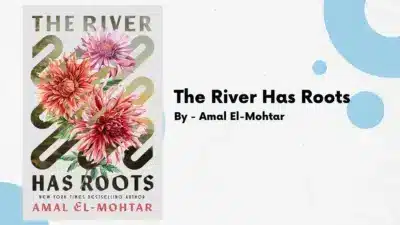- But what exactly is an adapted screenplays?
- At the Academy Awards, adapted screenplays have their own category.
- Interestingly, some screenplays that seem original on the surface actually qualify as adapted.
- Adapted screenplays serve as a bridge between two powerful storytelling mediums—literature and cinema.
- When done well, an adapted screenplay doesn’t just recreate the source material—it reimagines it.
- An adapted screenplay is more than just a translation—it’s a transformation.
When you sit in a darkened theater, popcorn in hand, and the opening credits roll, you might notice the words: “Based on the novel by…” or “Adapted from a play…” appear on screen. This signals one very important thing: the film you’re about to watch is built on a foundation that already existed. That foundation is the source material—and what brings it to life on screen is something known as an adapted screenplay. But what exactly is an adapted screenplays? How is it different from an original screenplays? Why is it such a big deal in Hollywood and awards ceremonies like the Oscars? Let’s break it all down in this detailed guide.
What Is an Adapted Screenplay?
An adapted screenplay is a script for a film or television show that is based on previously published or produced material. This could include:
- Novels
- Plays
- Memoirs
- Short Stories
- Articles
- TV shows
- Even other films (like foreign-language remakes)
The screenwriter’s job is to adapt that original work into a format suitable for the screen—often reimagining scenes, condensing long narratives, and translating internal monologues into visual storytelling.

Key Differences: Adapted vs. Original Screenplay
Let’s make the comparison clearer with a table:
| Feature | Adapted Screenplay | Original Screenplay |
|---|---|---|
| Source Material | Based on an existing work | Entirely new and original concept |
| Examples | The Godfather, Gone Girl, Dune | Inception, Get Out, Everything Everywhere All at Once |
| Creative Challenge | Balancing faithfulness with innovation | Building the world, characters, and plot from scratch |
| Oscar Category | “Best Adapted Screenplay” | “Best Original Screenplay” |
| Rights Required | Yes – needs legal permission to use source | No – belongs entirely to the screenwriter |
Why Adapt Works in the First Place?
You might wonder: why not just write something new?
Here are a few reasons why adapted screenplays are incredibly popular in the industry:
- Built-in Audience
Books and stories that already have a fanbase (think Harry Potter or The Hunger Games) come with a ready-made audience. - Proven Success
If a novel becomes a bestseller, it’s a good indicator that its story resonates—making it a safer bet for studios. - Rich Material
Novels and plays often contain deep characters and intricate plots that lend themselves beautifully to film. - Prestige Factor
Many literary adaptations, like Pride and Prejudice or Little Women, gain critical acclaim for their quality and depth.
The Art of Adapting
Turning a book or play into a screenplay is not as simple as copy-pasting the dialogue. It’s a creative reinvention. Here are some elements screenwriters must consider:
1. Condensing Lengthy Narratives
Books can span hundreds of pages. Films typically last 90 to 120 minutes. That means trimming fat, streamlining subplots, and making tough calls about what stays and what goes.
Example: The Lord of the Rings trilogy left out major subplots and characters (like Tom Bombadil) to keep the story flowing on screen.
2. Translating Internal Monologue
Books let you hear a character’s thoughts. Films need to show, not tell.
Example: In Gone Girl, Gillian Flynn used voiceovers and visual cues to express Amy and Nick’s psychological states rather than long internal dialogue.
3. Changing Structure
A book might be non-linear or experimental in form. A screenplay often requires a three-act structure to maintain pacing and audience engagement.
Example: Fight Club plays with unreliable narration, but the film had to restructure parts of the book to keep the mystery alive and cinematic.
4. Updating the Context
Sometimes the time period, setting, or character dynamics get changed to better suit modern audiences or fit a director’s vision.
Example: Clueless (1995) is a modern adaptation of Jane Austen’s Emma, set in a Beverly Hills high school.

Famous Adapted Screenplays That Left a Mark
Here are some of the most iconic adapted screenplays in film history:
| Movie Title | Source Material | Screenwriter(s) | Notable Awards |
|---|---|---|---|
| The Godfather | Novel by Mario Puzo | Mario Puzo & Francis Ford Coppola | Oscar for Best Adapted Screenplay |
| To Kill a Mockingbird | Novel by Harper Lee | Horton Foote | Oscar for Best Adapted Screenplay |
| The Social Network | The Accidental Billionaires by Ben Mezrich | Aaron Sorkin | Oscar for Best Adapted Screenplay |
| No Country for Old Men | Novel by Cormac McCarthy | Joel & Ethan Coen | Oscar for Best Adapted Screenplay |
| Little Women (2019) | Novel by Louisa May Alcott | Greta Gerwig | Nominated for Best Adapted Screenplay |
Challenges Screenwriters Face with Adaptations
Writing adapted screenplays presents its own set of unique hurdles:
- Fan Expectations: Stray too far from the book and fans may revolt (looking at you, Percy Jackson). Stick too closely, and it might feel stiff or uninspired.
- Legal Rights and Limitations: Writers can’t just adapt any book—they need the rights. And sometimes, authors retain creative control, limiting the screenwriter’s freedom.
- Time Constraints: Compressing complex plots and emotional arcs into a two-hour film is no small feat.
- Narrative Voice: Capturing the tone and voice of the original author while making it cinematic can be a tough balancing act.
Adapted Screenplay in Awards and Recognition
At the Academy Awards, adapted screenplays have their own category. This is a testament to the craft and complexity involved. Interestingly, some screenplays that seem original on the surface actually qualify as adapted.
Fun Fact: Before Sunset (2004) was nominated as an adapted screenplay because it was a sequel to Before Sunrise, meaning it drew on previously established characters and storylines.
Why It Matters
Adapted screenplays serve as a bridge between two powerful storytelling mediums—literature and cinema. They breathe new life into classic tales, elevate modern stories, and often introduce literary gems to audiences who may never have picked up the book.
When done well, an adapted screenplay doesn’t just recreate the source material—it reimagines it. It honors the original while embracing the unique language of film. And that’s where the magic lies.

Final Thoughts
An adapted screenplay is more than just a translation—it’s a transformation. It takes the written word and turns it into visual art. While original screenplays showcase fresh creativity, adaptations require a different kind of genius: the ability to reshape, reframe, and re-tell an existing story in a way that feels entirely new.
So next time you’re watching a movie that starts with “Based on the novel by…”, take a moment to appreciate the screenwriter who made that leap—from page to screen—and brought someone else’s story roaring to cinematic life.
Also Read: Traditional Publishing vs. Self-Publishing: Which Is the Better Path for Authors?



